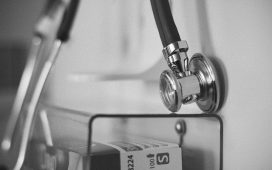Early diagnosis for a disease is always a hot topic of discussion in the healthcare sector. Early diagnosis has become a no-brainer fact among the people. The continuous improvement in technology allows healthcare professionals to identify the disease and start the treatment efficiently. Many people support the point of early diagnosis and think that treating a disease earliest possible is the best practice. While on the other side, some people always avoid visiting the doctor during the initial symptoms. However, there is a lot more than just an early diagnosis. With the aging baby boomers and rising pandemic, many people prefer the initial diagnosis to keep a safe side for threatening diseases.
Early and accurate diagnosis is indeed the key to better treatment. It assists healthcare professionals in identifying all the symptoms that relate to the life-threatening disease. With the sudden increase in diseases like dementia, cancer, and Alzheimer’s, only a diagnosis can answer all the potential symptoms. An early diagnosis can help families plan their medical needs and make essential decisions for their financials. While at one side where the initial diagnosis can be surprisingly beneficial, it can become the wrong side too. With that said, let’s discuss the major pros and cons of early diagnosis.
- PROS OF EARLY DIAGNOSIS
- EARLY EVALUATION OF SYMPTOMS
Early diagnosis has numerous benefits from providing better healthcare services to the previous evaluation of the symptoms. In many cases, the diseases have similar symptoms, which makes the diagnosis extremely difficult. For instance, many people show signs of dementia, but other medical disorders can cause it.
Early evaluation of the symptoms gives healthcare experts enough time to diagnose the disease and its severity. Nowadays, many conditions are either mild or asymptomatic, which makes the diagnostic complex for healthcare professionals. Avoiding early diagnosis can impose severe health risks. It is highly advisable to consult renowned laboratories like Primex Labs to perform the disease’s initial evaluation. The more initial assessment can help you to keep a safe side from severe illness and overdiagnosis.
- ACCESS TO RIGHT MEDICINES
As discussed earlier, prompt diagnosis can significantly slow down the development of the disease to severe levels. Another most important benefit of diagnosis is that it assists in providing access to the right medicines. Since most conditions involve similar symptoms, it becomes tough to keep track of the right medication for a specific illness. Early diagnosis is helpful for both the patient and medical professional to ensure safety from overtreatment.
- MAKING PLANS
Diseases are an inevitable part of our lives. However, these diseases also allow people to secure finance and plan for the future. This plan is essential to maintain a healthy life while ensuring financial support for the family. Many research has suggested that people in the early stages of disease make better decisions and plans for their future experiences. In this case, a more initial diagnosis can give you enough time to discuss the disease’s treatment.
- GETTING ADVICE AND SUPPORT
Diagnosing diseases like dementia or cancer can be heartbreaking for many people. However, an early diagnosis can provide support and hope for getting reliable treatment from better resources. Many charity organizations support patients and help them cope with the disease. Moreover, you can also receive professional advice and information for better treatment for your condition.
- USE RESOURCES FOR TREATMENT
Early identification of the diseases can prevent you from making regretful choices in your life. With the previous reports, you can plan to use different resources like insurance and healthcare support for a faster recovery.
- PARTICIPATE IN MEDICAL RESEARCH
Those who get diagnosed with diseases like Alzheimer’s and cancer in the early stages can also contribute to research groups. It is always a good step to come forward and help medical professionals learn and research the disease’s growth. Not just that, but participating in medical research can also help the professionals to advocate improved treatment for the conditions.
- ACCURATE DIAGNOSIS
The earliest diagnosis of the disease is mostly accurate than the latter. For instance, patients can easily recall their initial symptoms in the early stages. Meanwhile, obtaining the diagnosis results in the last stages of the disease can become more complicated and leaves no time for the treatment.
- HELP YOUR LOVED ONES
Not only the early diagnosis will assist in recovering from the disease, but it will also support your loved ones. Since you will have plenty of time to rest and treatment, you will experience noticeable cognitive changes around the family.
- CONS OF EARLY DIAGNOSIS
- STRESS AND DEPRESSION
Along with the advantages, early diagnoses impose disadvantages too. Many people take the initial diagnosis to a negative side and feel stressed about the underlying disease. In many cases, people get diagnosed with conditions that might not be curable. This factor seriously impacts their mental health and also worsens the disease situation.
- OVERDIAGNOSIS
Early diagnosis can often lead to overdiagnosis, which can cause serious health complications. Overdiagnosis means diagnosing the disease’s severeness at a level where it would not have caused symptoms or death. It can cause severe harm to health through treatment and various other factors. Overdiagnosis follows intensive therapy for the disease, which is not even harmful to the patient. It leads to complex side effects and makes the condition even more critical.
- FALSE POSITIVE
Medical machines may be subject to false positives, which produces wrong results. That means the screening machines can never produce accurate results for the disease. For instance, they can often suggest that the patient has cancer, even when there is nobody. The same goes for the patients who may have cancer but get never detected by the machines.
FINAL WORDS
Getting an early diagnosis for the ailment is an excellent approach to recover from the disease. However, it is not always helpful for treatment. Healthcare professionals are still performing research to identify the disease and halt their growth accurately. It is important to note all the benefits on the practical level and consider the early diagnosis. Moreover, healthcare systems must also use their resources wisely and use the data for the final results.







